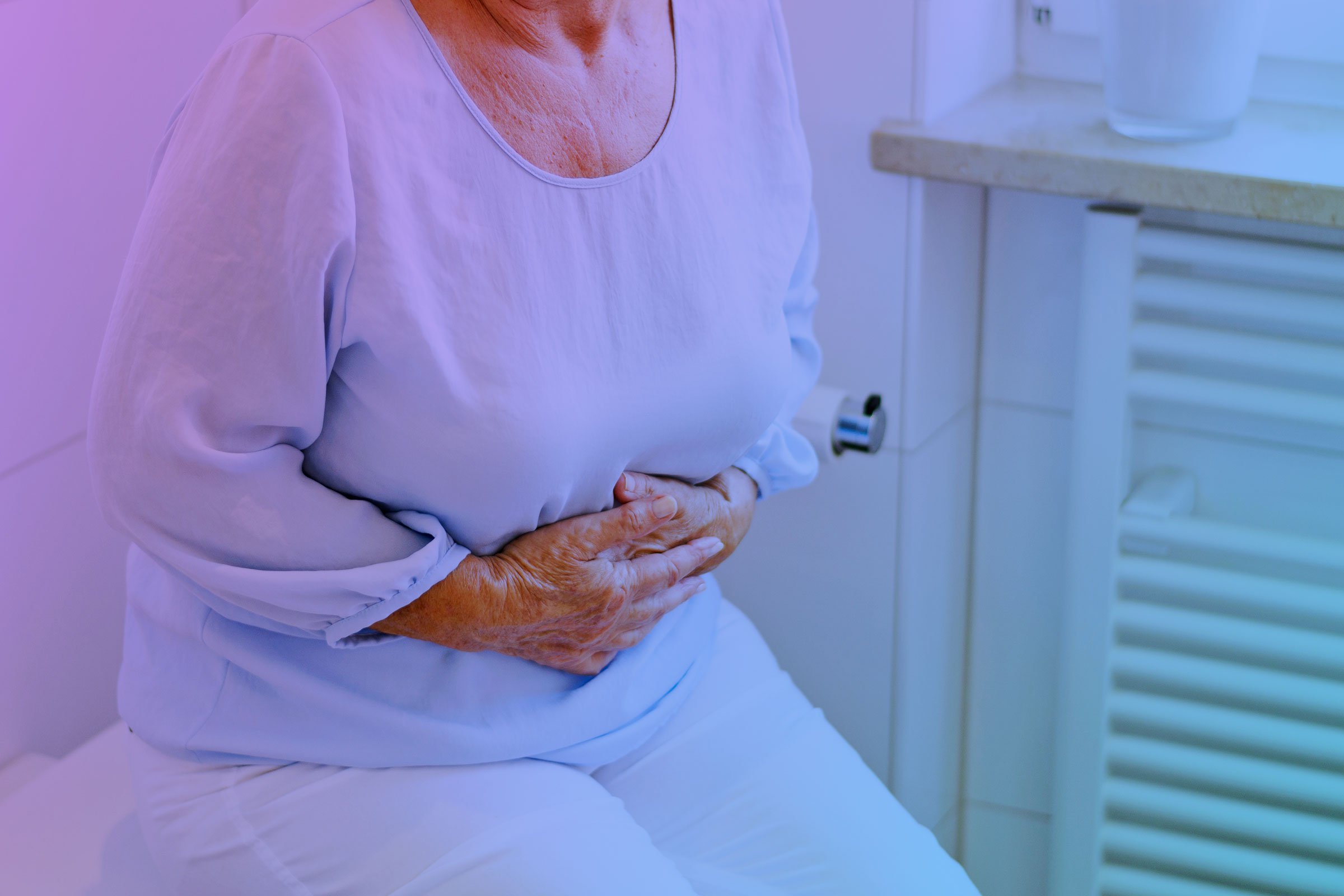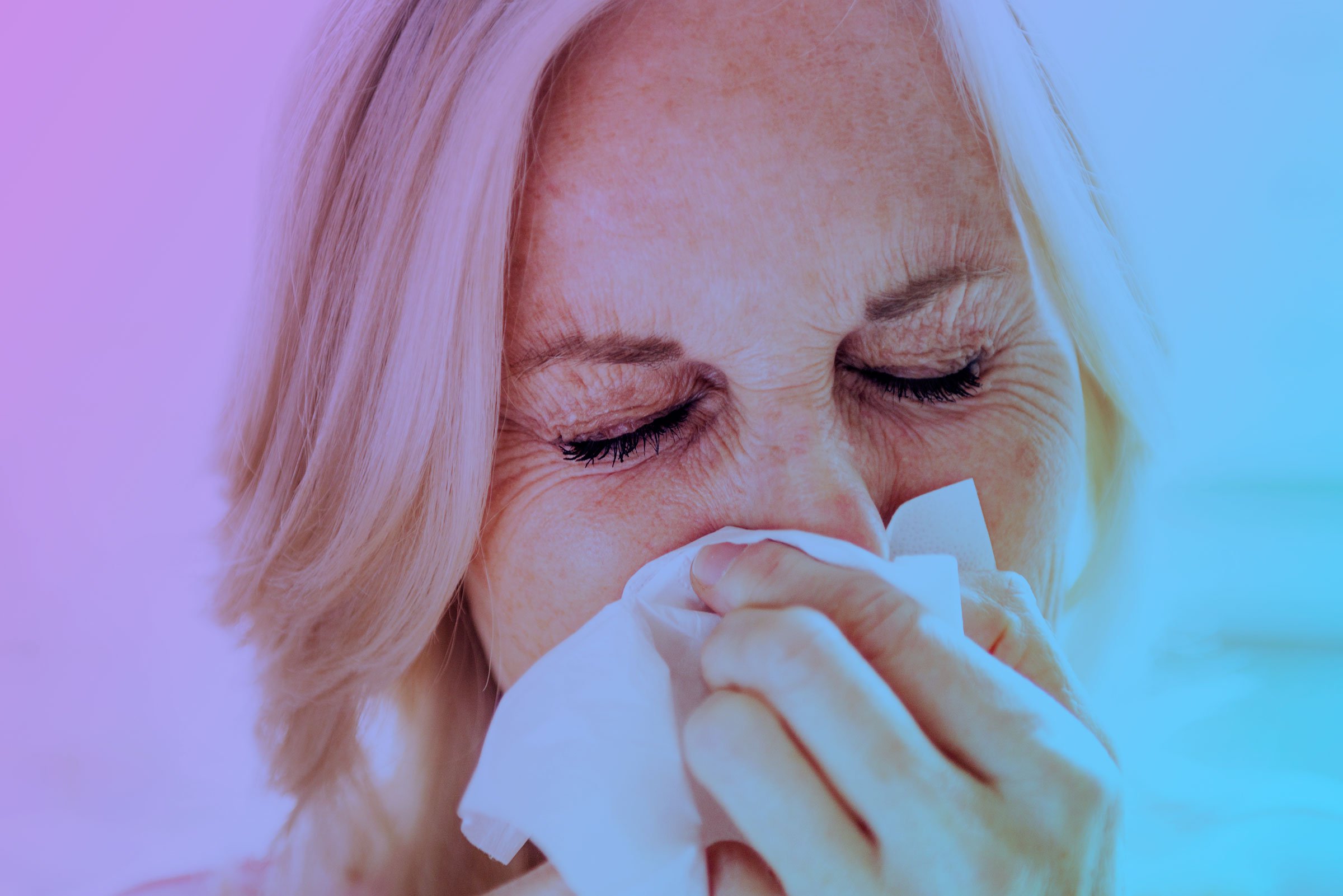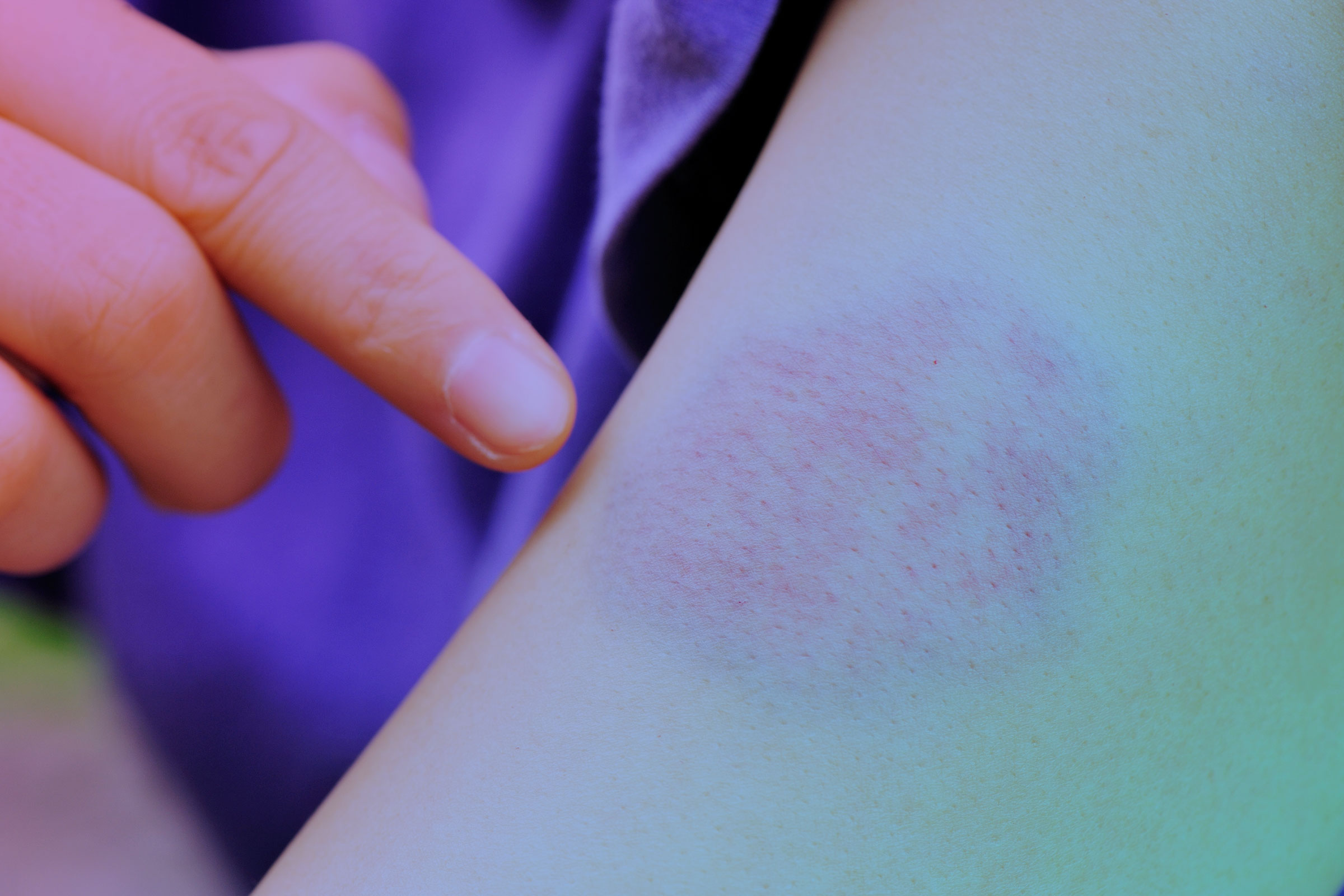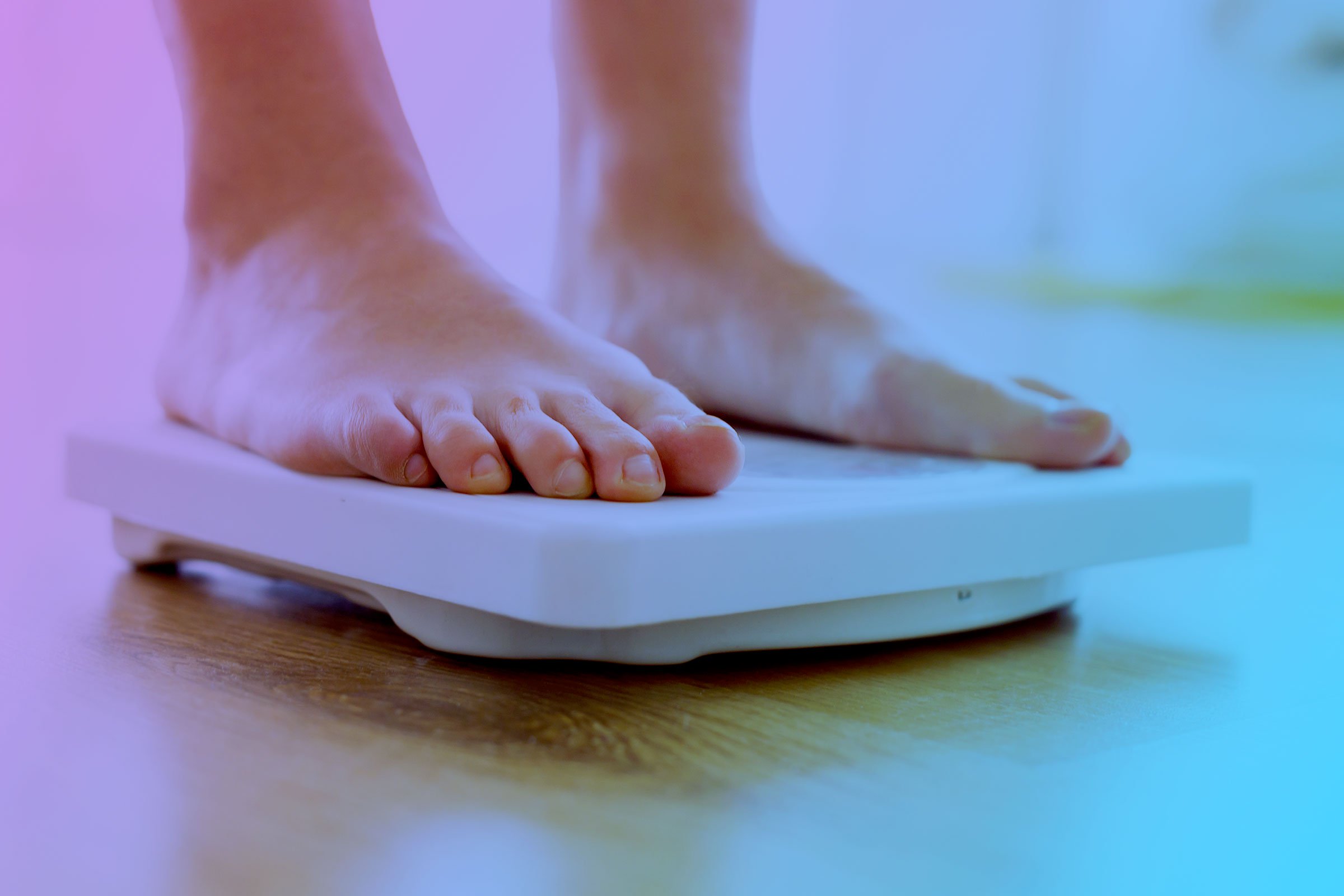Many cancer signs mimic symptoms of other diseases or conditions, so it’s easy to brush them aside.
All the doctors we interviewed agreed: Know your body, and if you notice an unusual pain or other change that persists and gets worse, head to the doctor.
Postmenopausal bleeding
 ISTOCK/MHEIM3011
ISTOCK/MHEIM3011
It’s not uncommon for women to see some light spotting even after they’ve gone through menopause. But if you suddenly start period-like bleeding again, and it’s consistent, it could be an early warning sign of uterine cancer, says Maurie Markman, MD, an oncologist at Cancer Treatment Centers of America.
The good news: Women diagnosed at stage 1, when the cancer hasn’t spread, have a five-year survival rate of 88 percent, according to the American Cancer Society.
Breast dimpling, discoloration, or other changes
 ISTOCK/MONSTERSTOCK1
ISTOCK/MONSTERSTOCK1
An unusual lump is the telltale sign of breast cancer women are told to look for. But other breast changes can signal cancer. If you notice the skin of your breast becoming dimpled, a nipple inverting, swelling, tenderness, or slight discoloration of the skin to a deeper red or pink, it could be cause for concern, says Rich Wender, MD, chief cancer control officer for the American Cancer Society.
“Those signs don’t necessarily mean it’s cancer, but that’s exactly why women delay seeking help because they’re hoping it’s nothing,” he says
Bloating
 ISTOCK/CHRISTIAN MARTINEZ KEMPIN
ISTOCK/CHRISTIAN MARTINEZ KEMPIN
Nearly every woman complains of bloating, especially during that time of the month; but if you notice you’re still bloated after your cycle finishes or you feel consistently constipated, it could be a symptom of ovarian cancer or uterine cancer.
“If it’s been a few weeks and isn’t getting better, that’s a change, that’s not you,” says Dr. Wender. “Ask a doctor to take a closer look.” Many ovarian cancer patients report having experienced vague symptoms, like bloating, that they ignored for months before seeking help, says Moshe Shike, MD, gastroenterologist at Memorial Sloan Kettering Cancer Center in New York City. A feeling of fullness despite a lighter appetite is another common sign of ovarian cancer.
Abnormal periods or pelvic pain
 ISTOCK/MICHAELJUNG
ISTOCK/MICHAELJUNG
It’s not uncommon for women to have irregular periods, but if your flow suddenly becomes significantly heavier month after month, if you start bleeding between periods, or if you have pelvic pain, ask your doctor for a transvaginal ultrasound to check for uterine, ovarian, or other vaginal cancers.
Chronic coughing
 ISTOCK/GEORGE CLERK
ISTOCK/GEORGE CLERK
Everyone gets colds that have you feel like you’re coughing up a lung. But if you develop a cough that lasts three weeks or more and you don’t have other symptoms that usually accompany a cold or allergies, like a stuffy nose, it could be an early symptom of lung cancer.
Leukemia can also cause symptoms that seem like bronchitis or a bad chest cold. “If it’s different than your regular cough and if it persists or you cough up a little blood, that’s significant,” says Dr. Markman. Some lung cancer patients report chest pain that extends up into the shoulder or down the arm.
Stomach pain or nausea
 ISTOCK/SVETIKD
ISTOCK/SVETIKD
An upset stomach is so common it will rarely mean you have cancer. But if you notice persistent stomach cramps or are suddenly nauseous all the time and it’s not getting better, see a doctor.
It could turn out to be something as simple as an ulcer, but it could also be a symptom of leukemia or esophageal, liver, pancreatic, or colorectal cancer.
Frequent fevers or infection
 ISTOCK/RIDOFRANZ
ISTOCK/RIDOFRANZ
If you’re usually healthy but notice yourself getting sick or feverish more frequently, it could be an early sign of leukemia. Leukemia is cancer of the blood and triggers the body to produce abnormal white blood cells, sapping the body’s infection-fighting abilities by weakening the immune system.
Pay attention to flu-like symptoms, like achiness or fever, which don’t go away.
Difficulty swallowing
 ISTOCK/CHESIIRECAT
ISTOCK/CHESIIRECAT
A sore throat can make swallowing hard or painful, but if you notice it persists for a few weeks and gets worse, see your doctor. This is a common sign of throat or stomach cancer and could also be an early sign of lung cancer.
Excessive bruising
 ISTOCK/LZF
ISTOCK/LZF
You wake up with one mysterious bruise—probably not reason to worry, maybe you bumped into something stumbling to the bathroom last night.
But if you start to notice bruises popping up all the time, especially in strange places like your hands or fingers, it should raise an alarm. Easy, unusual bruising can be a sign of leukemia, according to Cancer Treatment Centers of America. Over time, leukemia impairs the blood’s ability to carry oxygen and clot.
Unexplained weight loss
 ISTOCK/NENSURIA
ISTOCK/NENSURIA
“Weight loss for a lot of Americans is a good thing; everyone’s dieting—but if you have less appetite when you usually have a good appetite, and there’s no big life event or problems happening to cause that, get it checked out,” says Dr. Markman. Weight loss or unusual changes to appetite can be a sign of many cancers—such as esophageal, pancreatic, liver, and colon—but it’s an especially common symptom of leukemia or lymphoma, says Dr. Wender.
Persistent fatigue
 ISTOCK/ELENALEONOVA
ISTOCK/ELENALEONOVA
Everyone has days when they’re low on energy, but you should feel refreshed after a good night’s sleep or two. If you notice you’re tired every day for more than a month, or experience shortness of breath when you didn’t before, see a doctor, says Dr. Wender.
“Most of the time it won’t be cancer, but get it checked because you never know.” Leukemia and lymphoma commonly cause persistent fatigue.
Chronic headaches
 ISTOCK/MAPODILE
ISTOCK/MAPODILE
If you’re not prone to migraines and never get headaches, but suddenly find yourself popping ibuprofen every day, it could be a symptom of a brain tumor, which causes pain by pressing on nerves.
Blood in the stool
 ISTOCK/SARAH MUSSELMAN
ISTOCK/SARAH MUSSELMAN
Most likely it’s something benign, like hemorrhoids. But this can be a sign of colon cancer. Cases are increasingly common in people under the age of 50—the age at which colon cancer screening is typically first recommended—Dr. Wender says it’s important to get checked out.
“It’s easy to dismiss it as hemorrhoids or constipation, and if the problem comes and goes, people reassure themselves that nothing’s wrong, especially younger people,” he says. “But blood in a bowel movement is never normal, so get it checked out.”
Noticeable skin changes
 ISTOCK/WILLIE B. THOMAS
ISTOCK/WILLIE B. THOMAS
Skin cancer is the most common cancer in America, but it’s also one of the trickiest to recognize the early signs, says Dr. Wender. “Skin cancer is a tough one—many people think freckles, moles, or a darker age spot is just like the others they’ve had,” he says. Dr. Wender says if you notice a mole getting darker, larger, or becoming raised, get it checked out.
Melanoma skin changes are easier to identify because those spots are often irregularly shaped as opposed to round, significantly darker in color, or even two distinctly different colors within one spot, he says. “Melanoma is far less common than other skin cancers but has the potential to be more deadly,” says Wender.
“However, many melanomas have a long period where they’re not invasive and easy to cure, as long as they’re caught early.”
Sores or pain in the mouth
 ISTOCK/MILAN
ISTOCK/MILAN
A cold sore that heals is probably nothing to worry about—Try one of these homemade cold sore remedies to resolve the issue—nor is a toothache that goes away after a trip to the dentist.
But if you notice sores that don’t heal, pain that sticks around, white or red patches on the gums or tongue, and any swelling or numbness of the jaw it could be a sign of some mouth cancers. If they persist for longer than two weeks, the American Cancer Society suggests seeing a doctor.
Join the movement to end cancer
 COURTESY STAND UP TO CANCER
COURTESY STAND UP TO CANCER
Featuring performances from top recording artists and celebrities from film, television, and sports, Stand Up To Cancer will appeal to the public for donations to fund cutting-edge cancer research. Stand Up To Cancer is working with its scientific partner, the prestigious American Association for Cancer Research, to present illuminating scientific information.
Produced by Bradley Cooped, the program will include celebrity phone and multimedia banks that will allow you to interact with participating talent. You can also donate at standup2cancer.org.
One hundred percent of donations received from the general public will support Stand Up To Cancer’s collaborative cancer-research programs. Stand Up To Cancer airs Friday, September 9 (8 p.m. to 9 p.m. ET live/ PT tape-delayed) on over 40 networks, broadcasters, and cable providers in the United States and Canada.
source:rd
